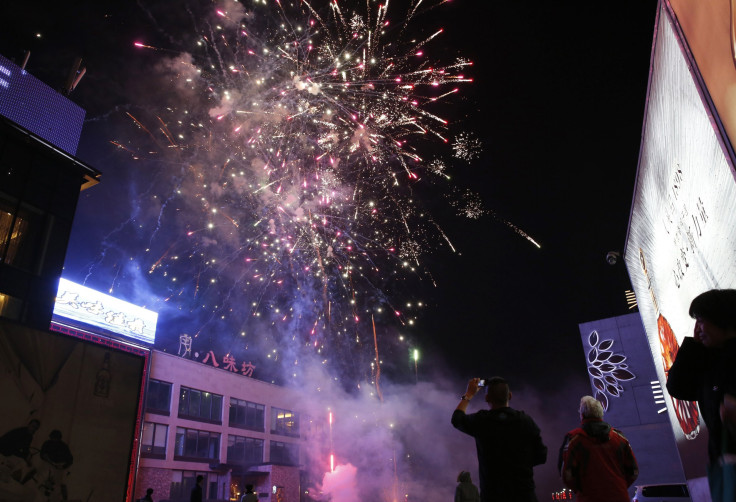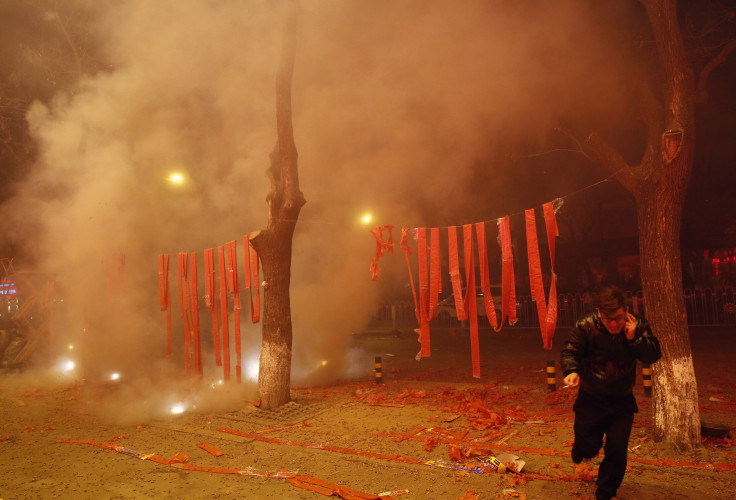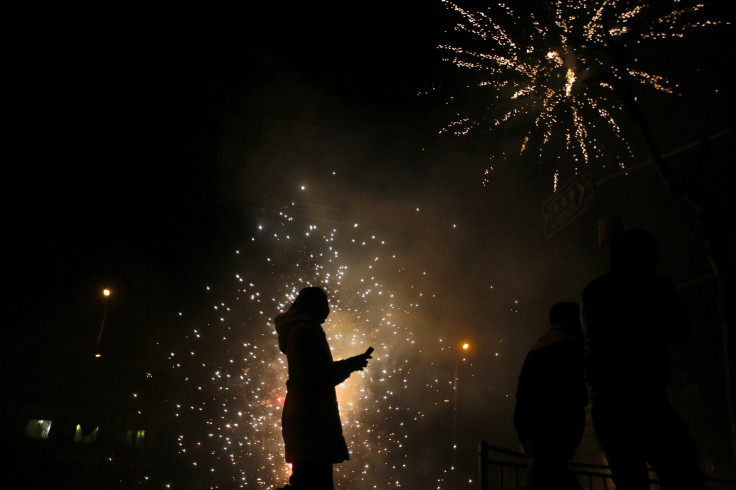Chinese New Year 2015 Fireworks: Lunar New Year Celebrations Spur Air Pollution Debate

Skies across China lit up last night as the nation rang in the Lunar New Year. When Beijing skies quieted as celebrations wound down, a blanket of smog remained. Real-time air quality data from Beijing showed the almost immediate impact that the city’s fireworks had on the environment, with levels of PM2.5, a common airborne pollutant, skyrocketing after midnight.
In an effort to curb pollution, China’s government announced restrictive measures on fireworks in order to reduce the amounts of airborne pollutants during new year celebrations. China’s Ministry of Public Security announced that fireworks were banned in 138 cities, while another 536 cities received new restrictions on setting off fireworks.
New Year's fireworks really blew up Beijing's pollution last night. pic.twitter.com/DMFSXLuswO
— Austin Ramzy (@austinramzy) February 19, 2015Chinese set off fireworks and firecrackers to scare away evil spirits from the past year and to start the new year with a clean slate, and they continue to set off fireworks through the 15-day holiday. A survey on microblogging site Weibo showed that 60 percent of respondents were willing to give up the long-standing fireworks tradition to help fight air pollution. The other 40 percent, however, insisted on celebrating the new year with fireworks, even if it meant worse air quality.
This is the street outside my apartment in Beijing last night. The fireworks started again this morning at 5am #新年快乐 pic.twitter.com/iU3r5Ro7f6
— Dan Wilson (@actordanwilson) February 19, 2015It's not surprising that the fireworks restriction led to a dip in sales across China. Beijing reduced its fireworks order from around 500,000 cases to 315,000. Factories also produced less fireworks, which may be due to the economic slowdown in China.
Pollution is a tremendous concern for China and there has been a renewed effort to improve air quality across the country and in cities like Beijing. The Beijing Olympic task force is looking to reduce air pollution in its attempt to host the 2022 Winter Olympics. Before the 2008 Summer Games in Beijing, China created a system that limited the number of vehicles on the road.


© Copyright IBTimes 2024. All rights reserved.






















